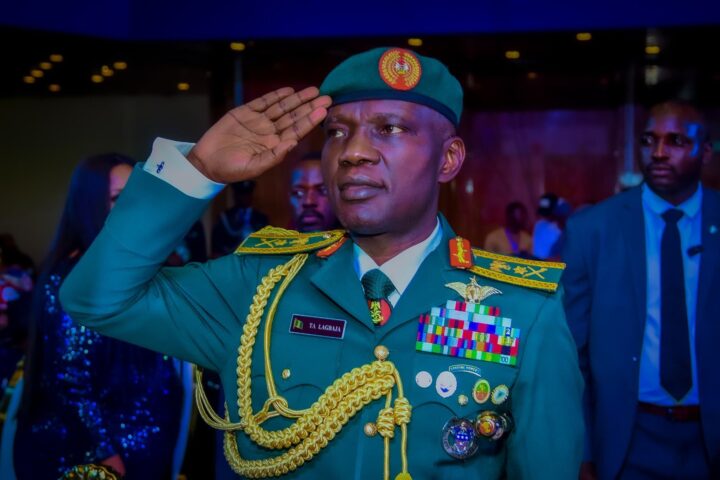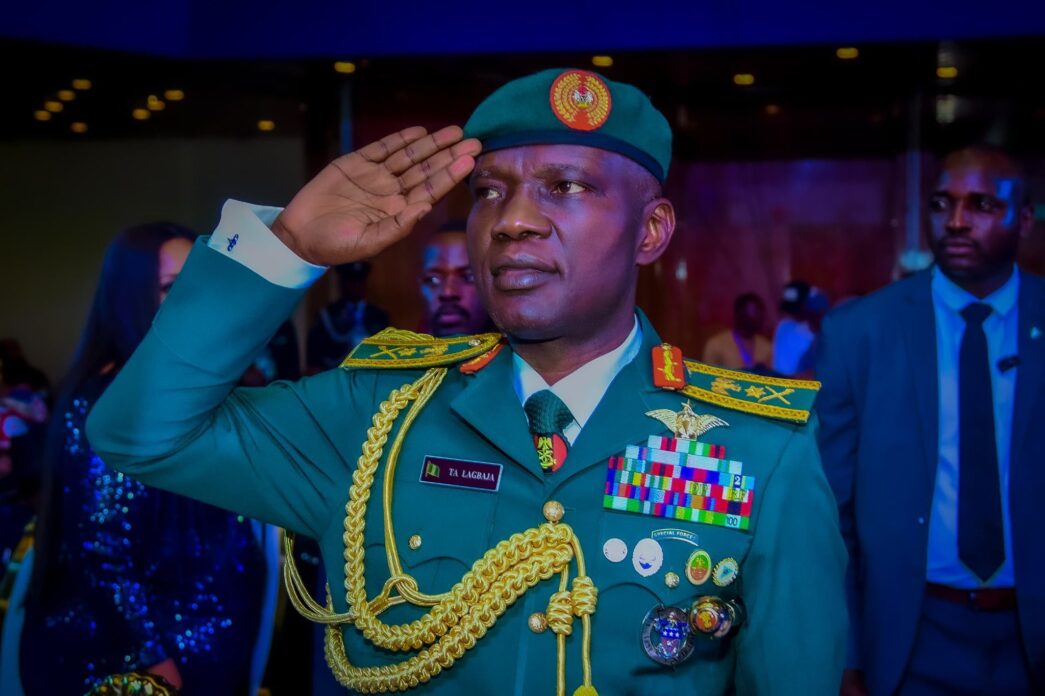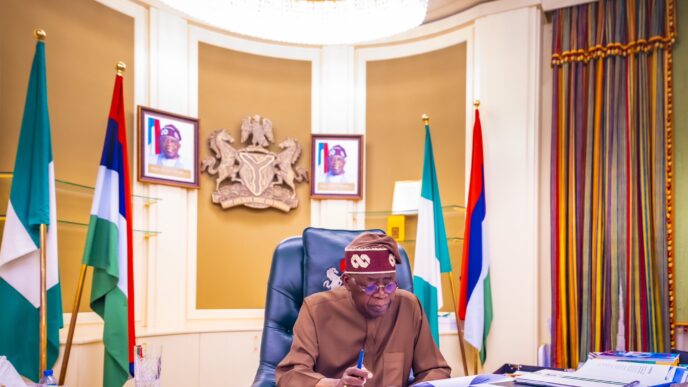Lieutenant General Taoreed Abiodun Lagbaja was an enigma. There are video clips of his displays in various capacities. I saw a video of him dancing in a church and another video of him commanding his soldiers in a battle situation. His smiles are always brief and disappear in a jiffy, and he returns to business. Lagbaja epitomised responsibility in line with the command and control philosophy of the Nigerian military. For him, it was “do as I do, not as I say” The military profession is about absolute responsibility with no room for mediocrity. That was what the late Chief of Army staff embodied until he took his rest, albeit temporarily, because his name would continue to reverberate whenever the story of leadership in the Nigerian Army is told for centuries.
Posterity has a way of paying you back in your coin. It would travel to the furthest generation where your story either serves as an inspiration or discouragement. Lagbaja wittingly registered his name as an inspiration before he took a bow through his actions and inactions as a soldier, commander, and war strategist. He was a welfarist. He did everything to make officers and soldiers comfortable so they could carry out their duties effectively and without distraction.
I didn’t get to meet him in person, but as a military historian, I read about his brilliant exploits in the Nigerian Army. I recently stumbled on a video of when he took over as the Chief of Army Staff. The outgoing Chief of Army Staff, Lt Gen. Faruk Yahaya eulogised Lagbaja to high heavens like he knew time was not on his side. He was visibly happy handing over the affairs of the Nigerian Army to him. He shared a story before the handover. He said, “As the incoming chief of army staff, yesterday, he still sent a detailed report on the operations of the Nigerian Army and also memos seeking my approval for army operations and welfare. That was his level of professionalism and humility.”
I gathered he didn’t care about grandeur. He was at home with his troops. He led from the front and by example. He was a brave heart. His career trajectory was that of brilliant tales of bravery and entrenching bravery in his lieutenants and subordinates. He was accessible and had first-hand knowledge of ongoing military operations. He was always at the centre of planning and execution, which earned him the nickname Lagbaski from his contemporaries. He was also called jump master by soldiers because he was an expert paratrooper who understood that the infantry needed close air support in battle in addition to air support from the Air Force.
Advertisement
As a colonel, he commanded the 72 Special Forces Airborne Battalion of the Nigerian Army. The Special Forces units consist of well-trained combatants with expertise in fighting under extreme conditions. He was also the pioneer director of Force Generation in the Nigerian Army, a department that is saddled with the responsibility of producing trained, ready, and cohesive units for deployment in support of internal security operations. His exploits were also felt in the theatre of operations in the northeast. As chief of staff of Headquarters 8 Task Force Division, Monguno, Borno state, he led critical operations to the Boko Haram terrorists’ enclaves with success. As a Major General, he commanded the elite One Division, the oldest division of the Nigerian Army, where he conducted “Operation FOREST SANITY” in tackling banditry and insurgency in the North West.
The trajectory of Lagbaja’s career speaks volumes of a man who was passionate about his job. An attribute that explains his demeanour. Someone said he loved to be in the trenches on patrol rather than be seated in the office. Imagine the Chief of Army Staff in the trenches, occasionally doing push-ups with troops in military style and tradition. He was sublime in his military strategies. He was always drafted for complex military operations. The core of the army tradition was at the centre of his heart. He rewarded hard work and sanctioned indiscipline. This was a basic rule under his command and his philosophy until he breathed his last as the 23rd Chief of Army Staff of the Nigerian Army.
Lagbaja departed when the ovation was loudest. He came, saw, and conquered. There was nothing left. It was not an accident that he was at a time the Chief of Operations of the Nigerian Army. The implication was that he won the race by successfully mentoring many on military strategy. It is on this path that the Taoreed Abiodun Lagbaja story must be told and preserved.
Advertisement
There is no better way to immortalize “Lagbaski” than the establishment of a “Taoreed Abiodun Lagbaja Centre for Military Strategy” to serve as a research hub that would dwell on command and control in promoting and developing excellence in Military operations, among others.
It is a painful one that he left so soon. But he can’t be forgotten because he built the “Lagbaski” philosophy that emphasized passion and commitment to preserving the territorial integrity of Nigeria and absolute loyalty to the constitution of the Federal Republic of Nigeria. Though he is in a place of rest, his name would continue to reverberate in the furthest generation. He was identified even though the name Lagbaja connotes a “person whose identity is intentionally concealed”. He had no hiding place as his exploits spoke volumes of a man on a mission. The 21-gun salute, a prestigious military honor, is fitting for Lagbaja’s remarkable service.
Ocheja, a military historian and doctoral researcher, is an alumnus of the Nigerian Defence Academy.
Advertisement
Views expressed by contributors are strictly personal and not of TheCable.
Add a comment













